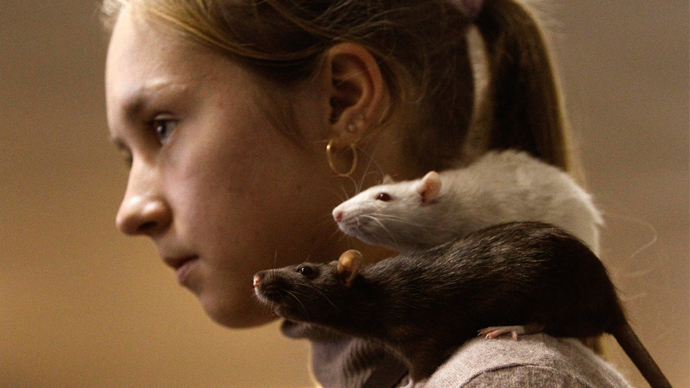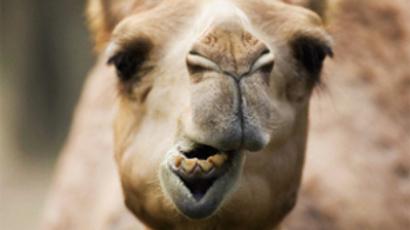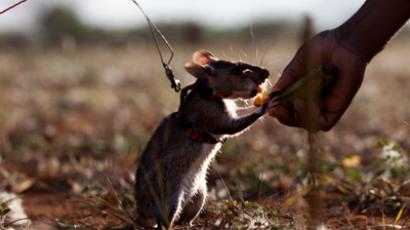Rats regret bad decisions, just like humans - study

Humans are not the only animals that feel regret after making bad decisions. According to a new study published in Nature Neuroscience, rats rue choosing the wrong option as well.
Researchers at the University of Minnesota Academic Health Center created a rat version of “restaurant row” for their experiment. This animal adaptation of a hopping downtown hotspot consisted of four different stops a rat could make. At each entrance, a tone sounded that indicated how long a rat would have to wait to receive food, similar to a restaurant hostess telling walk-ins how long they will have to wait for a table. Rats would then choose between staying and going, Time reported.
“It’s like waiting in line at a restaurant,” A. David Redish, Ph.D., a professor of neuroscience in the University of Minnesota Department of Neuroscience, said in a statement. “If the line is too long at the Chinese food restaurant, then you give up and go to the Indian food restaurant across the street.”
The researchers, led by Redish and Adam Steiner, a graduate student in Minnesota’s Graduate Program in Neuroscience, found that rats were willing to wait longer for certain flavors, but that the preferences were individual among the animals. This predilection for favorites allowed the team to measure good and bad deals.
“Sometimes, the rats skipped a good deal and found themselves facing a bad deal,” the statement said.
An example of this, the Independent notes, is when a rat moved on from a restaurant that had its preferred food because it was taking too long, but then ended up with a dish it didn’t like as much. In human terms, it would be like ending up at the Chinese place when you’re really craving Thai. Another situation the rats faced was leaving a long wait at one stop, only to face a longer wait at the next, when they only had an hour to complete the course.
In these scenarios, the researchers were surprised to find that “when the rats made a bad choice they stopped and looked back,”Time reported. The looks back suggested regret to the researchers.
“It looked like Homer Simpson going, ‘D’oh!’” Redish told Wired.
"Regret is the recognition that you made a mistake, that if you had done something else, you would have been better off," Redish said in the statement. "The difficult part of this study was separating regret from disappointment, which is when things aren't as good as you would have hoped. The key to distinguishing between the two was letting the rats choose what to do."
Regret situations were those where the rats skipped a deal only to face a worse one, while disappointment situations were those where they made the right choice, like skipping a bad deal, but faced a bad deal at the next restaurant anyway, Wired reported.
Researchers found that the rats only looked backwards in regret (not disappointment) conditions. They were also more likely to take a bad deal if they had just passed up a good one, according to Wired. Finally, the rats tended to rush through their meals at the bad restaurants, “much like a regretful human would,” Huffington Post reported.
Redish and Steiner then used imaging to study the rats’ brain
activity, and found that after a rat made a mistake, the
orbitofrontal cortex of the brain–the part of the brain believed
to process regret in humans–was activated.
“Interestingly, the rat’s orbitofrontal cortex represented what the rat should have done, not the missed reward. This makes sense because you don’t regret the thing you didn’t get, you regret the thing you didn’t do,” Redish said.














